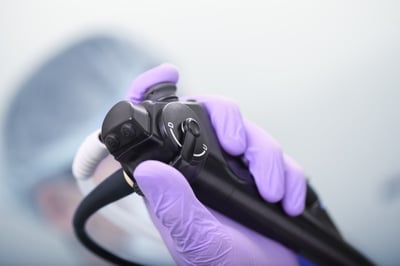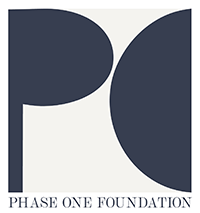Our Featured Research Page lists cancer prevention, treatment and quality of life studies enrolling people with or at high risk for hereditary cancers. Sign up for our community newsletter to stay up to date on the latest hereditary cancer research.
Search Results: Prevention, Detection & Risk (10 results)

Prevention
Screening study for people with a mutation linked to prostate cancer risk
PATROL Study: Prostate Cancer Screening for People AT Genetic Risk FOr Aggressive Disease
The PATROL (Prostate Cancer Screening for People AT Genetic Risk FOr Aggressive Disease) study is for people at risk for prostate cancer because they carry one or more genes that are known or suspected to increase prostate cancer risk: BRCA2, HOXB13, ATM, BRCA1, MLH1, MSH2, MSH6, PALB2, PMS2, CHEK2, RAD51D, or TP53.

Prevention
Prostate screening with MRI for men with Lynch syndrome (MLH1, MSH2, MSH6, PMS2, EPCAM) or a BRCA1, BRCA2, HOXB13, ATM, NBN, TP53, BRIP1, CHEK2, PALB2, RAD51C, RAD51D, or other mutation
Screening Study for Men at High Genetic Risk for Prostate Cancer
The National Institutes of Health has a clinical trial for men at high genetic risk for prostate cancer. This is trial is for men without prostate cancer, ages 30 to 75, who have tested positive for Lynch syndrome (MLH1, MSH2, MSH6, PMS2, EPCAM) or BRCA1, BRCA2, HOXB13, ATM, NBN, TP53, BRIP1, CHEK2, PALB2, RAD51C, RAD51D, or FANC (FANCA, FANCB, FANCC, FANCD2, FANCE, FANCF, FANCG, FANCI, FANCL, and FANCM). The trial involves screening MRI of the prostate every two years and biopsy of the prostate if the MRI is abnormal. There is no cost for travel or study-related tests.

Prevention
Prevention study for people with a BRCA1, BRCA2 or PALB2 inherited mutation who are planning to undergo risk-reducing mastectomy
Testing a Vaccine for Preventing or Treating Triple-Negative Breast Cancer
Researchers are studying the affects of this breast cancer vaccine on the immune system in two groups of people:
- People with an inherited mutation in BRCA1, BRCA2, or PALB2 who are planning to undergo a risk-reducing mastectomy.
- For people diagnosed with stage 2 or stage 3 triple-negative breast cancer at high risk for recurrence.

Prevention
Registry and biobank for high risk people undergoing pancreatic cancer screening
Pancreatic Cancer Early Detection for People at High Risk
The study will collect clinical information, family history, and samples (blood, saliva or cheek swab) from people and families at risk for pancreatic cancer. Collecting this information and samples will create a resource to drive research necessary for early detection and prevention of pancreatic ductal adenocarcinoma (PDAC).

Prevention
Screening using MRI for men at risk of developing prostate cancer
MRI Screening in Men at High Risk of Developing Prostate Cancer
This study will determine if prostate magnetic resonance imaging (MRI) will find prostate cancer in men at high risk of developing prostate cancer.

Prevention
People at high risk for prostate cancer due to an inherited mutation
Prostate Cancer Genetic Risk Evaluation and Screening Study (PROGRESS)
This study will look at how enhanced prostate cancer screening using MRI will improve early detection rates and further understanding of how inherited mutations can lead to development of prostate cancer.

Prevention
Observational study for people with family history of pancreas cancer or an inherited mutation linked to pancreatic cancer risk
Blood Markers of Early Pancreas Cancer
The purpose of this study is to try to find markers of early pancreatic cancer for individuals at higher-than-average risk, expedite the diagnosis in individuals with symptoms, and substantially improve an individual's chance of surviving the disease.

Prevention
Pancreatic cancer screening for people at high risk and with an inherited BRCA1, BRCA2, ATM, or PALB2 mutation
Preliminary Evaluation of Screening for Pancreatic Cancer in Patients with an Inherited Genetic Risk Due to a BRCA1, BRCA2, PALB2 or ATM Mutation
Improved screening for pancreatic cancer in high-risk groups, such as people with an inherited BRCA1, BRCA2, ATM, or PALB2 mutation, may help find cancer early and improve survival rates. People enrolled in this study will undergo screening using endoscopic ultrasound or MRI of the abdomen.

Prevention
Screening study for women with a BRCA1, BRCA2, BRIP1, PALB2, RAD51C, RAD51D, PMS2, MLH1, MSH2, MSH6, or EPCAM mutation
Validating a Blood Test for Early Ovarian Cancer Detection in High-risk Women and Families: MicroRNA Detection Study (MiDE)
The goal of MiDe is to develop a clinical diagnostic test to detect early onset ovarian cancer, as currently, there are no good screening or early detection tests available. Participants can be expected to provide up to 4 tubes of blood every 6 months for up to 5 years. We can collect these samples through mobile phlebotomy all around the US. The study is enrolling people with an inherited mutation with a gene linked to ovarian cancer, such as BRCA1, BRCA2, BRIP1, PALB2, RAD51C, RAD51D, PMS2, MLH1, MSH2, MSH6, or EPCAM. Participants can be expected to provide up to 4 tubes of blood every 6 months for up to 5 years. We can collect these samples through mobile phlebotomy all around the US.

Prevention
Screening study to detect pancreatic cancer and precancer in people with either a strong family history of pancreatic cancer, or an inherited mutation associated with pancreatic cancer risk
A Pancreatic Cancer Screening Study for High Risk Individuals
The purpose of this study is to screen and detect pancreatic cancer and precancer in people with either a strong family history of pancreatic cancer, or an inherited mutation associated with pancreatic cancer risk.
Magnetic Resonance Imaging (MRI) will be used to screen for early stage pancreatic cancer. Participants will also be asked to donate a blood sample at specific intervals for the creation of a blood bank necessary for the development of a blood-based screening test for pancreatic cancer.
Additional Results on Clinicaltrials.gov Prevention, Detection & Risk + PALB2
5 results
| Clinical Trial | Official Title |
|---|---|
| NCT05608694 | MRI Screening in Men at High Risk of Developing Prostate Cancer |
| NCT03568630 | Blood Markers of Early Pancreas Cancer |
| NCT02478892 | Preliminary Evaluation of Screening for Pancreatic Cancer in Patients With Inherited Genetic Risk |
| NCT06151223 | A Prospective Registry for Patients at High-Risk for Pancreatic Cancer |
| NCT03250078 | A Pancreatic Cancer Screening Study in Hereditary High Risk Individuals |


